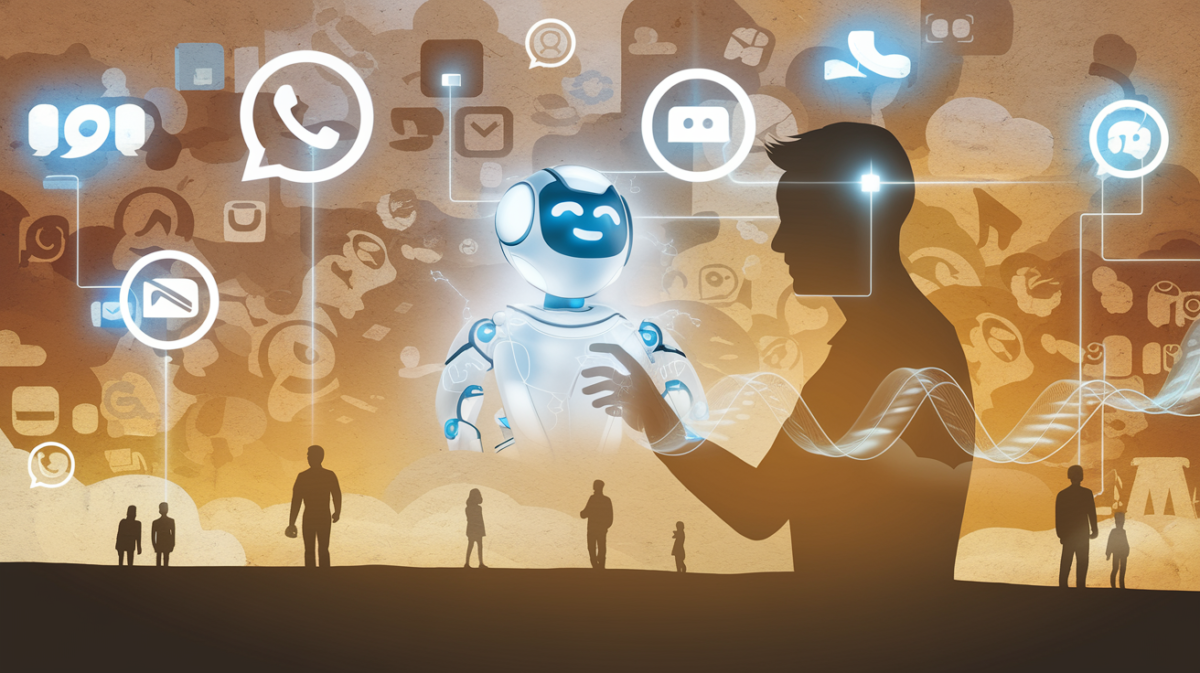Meta’s Push into AI-Powered Social Connections
In a recent interview, Meta CEO Mark Zuckerberg addressed a pressing question: Can artificial intelligence (AI) replace real friends? With loneliness becoming a growing concern in modern society, Zuckerberg outlined Meta’s vision for integrating AI companions into everyday social interactions. The company is developing AI agents for platforms like WhatsApp, Instagram, and Messenger, aiming to provide users with personalized and emotionally supportive chatbots.
Zuckerberg highlighted that the average American has fewer than three close friends, despite a strong desire for deeper social connections. AI, he argued, could help bridge this gap by offering companionship and creative engagement tools. “We see AI as an extension of human connection, not a replacement,” he said.
The Promise of AI Companions
Meta’s AI companions are designed to engage users in meaningful conversations, offer emotional support, and even assist with creative tasks. These bots leverage generative AI to simulate human-like interactions, making them more relatable and responsive. Key features include:
- Personalized Conversations: AI adapts to users’ preferences and communication styles.
- Emotional Support: Bots can provide comfort and companionship, especially for those feeling isolated.
- Creative Collaboration: Users can brainstorm ideas or co-create content with AI.
Research supports the potential benefits of AI companions. A study titled “AI Companions Reduce Loneliness” found that users who interacted with AI bots reported lower feelings of isolation. However, the long-term impact remains uncertain.
Concerns and Criticisms
While the idea of AI friends sounds futuristic, it has sparked debate. Critics raise several concerns:
- Privacy Risks: Meta’s AI operates under a privacy policy that allows it to use personal data, raising questions about user consent and data security.
- Addiction Potential: Over-reliance on AI for emotional needs could lead to unhealthy dependencies.
- Replacement of Human Interaction: Some fear AI companions might discourage real-world socializing, particularly among younger users.
Another study, “Chatbots as Social Companions,” found mixed results. While some users valued AI interactions, others felt they could never replace the depth of human relationships.
AI vs. Human Friends: A Comparison
| Feature | AI Companions | Human Friends |
|---|---|---|
| Availability | 24/7, instant responses | Limited by schedules and energy |
| Emotional Depth | Simulated empathy | Genuine emotional connection |
| Privacy | Data collection risks | Trust-based confidentiality |
| Creativity | Algorithm-driven ideas | Unique, spontaneous input |
The Future of Social Interaction
Zuckerberg’s vision reflects Meta’s broader ambition to redefine social connectivity through technology. While AI companions could alleviate loneliness, experts emphasize the need for balance. Platforms like Reddit have cautioned that AI should complement, not replace, human relationships.
As AI continues to evolve, the challenge lies in ensuring it enhances rather than diminishes authentic connections. For now, the question remains: Can AI truly fill the void of human friendship, or is it merely a temporary fix for a deeper societal issue?







